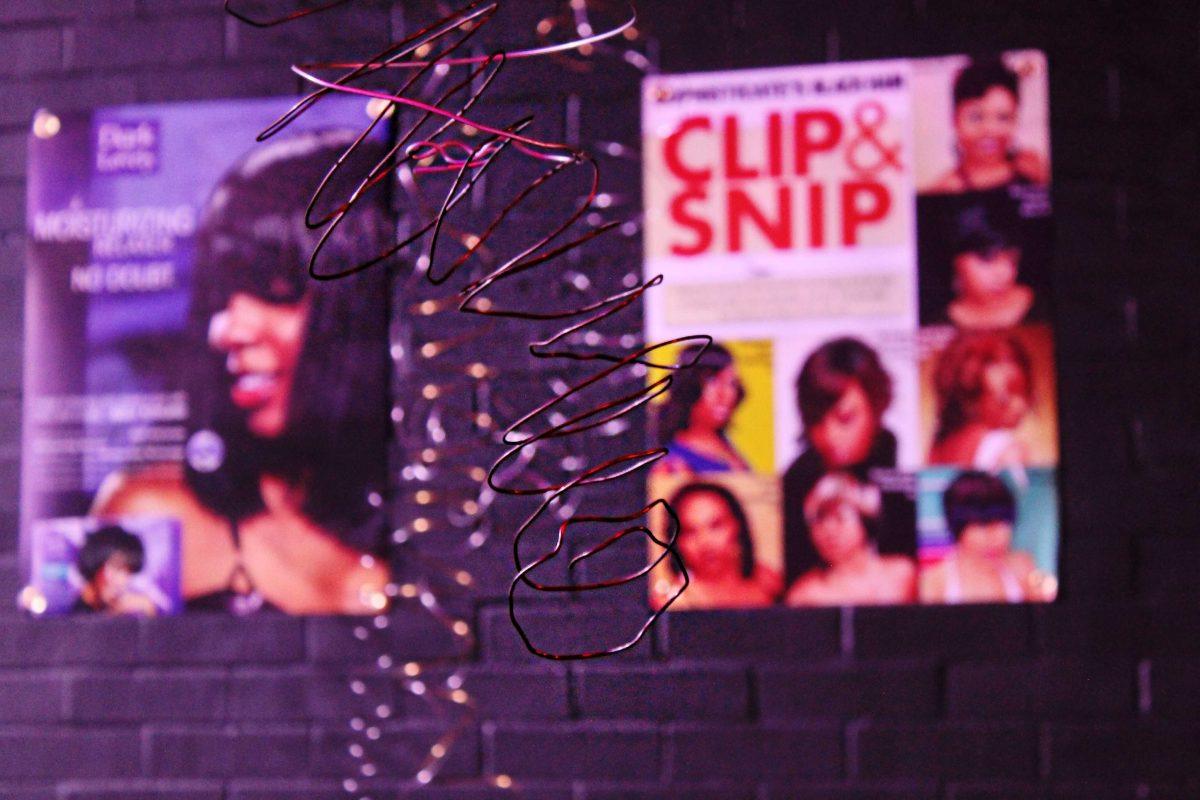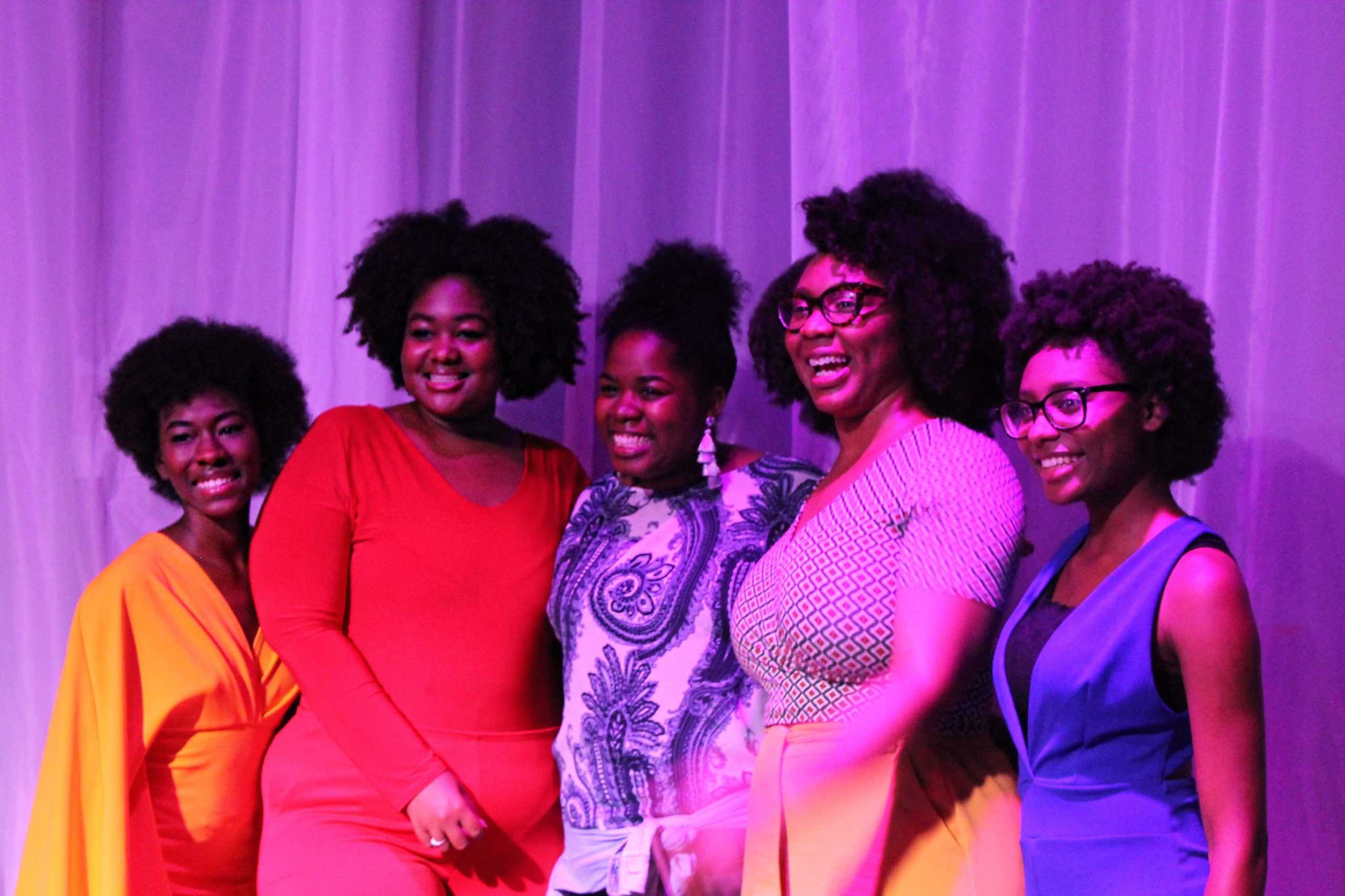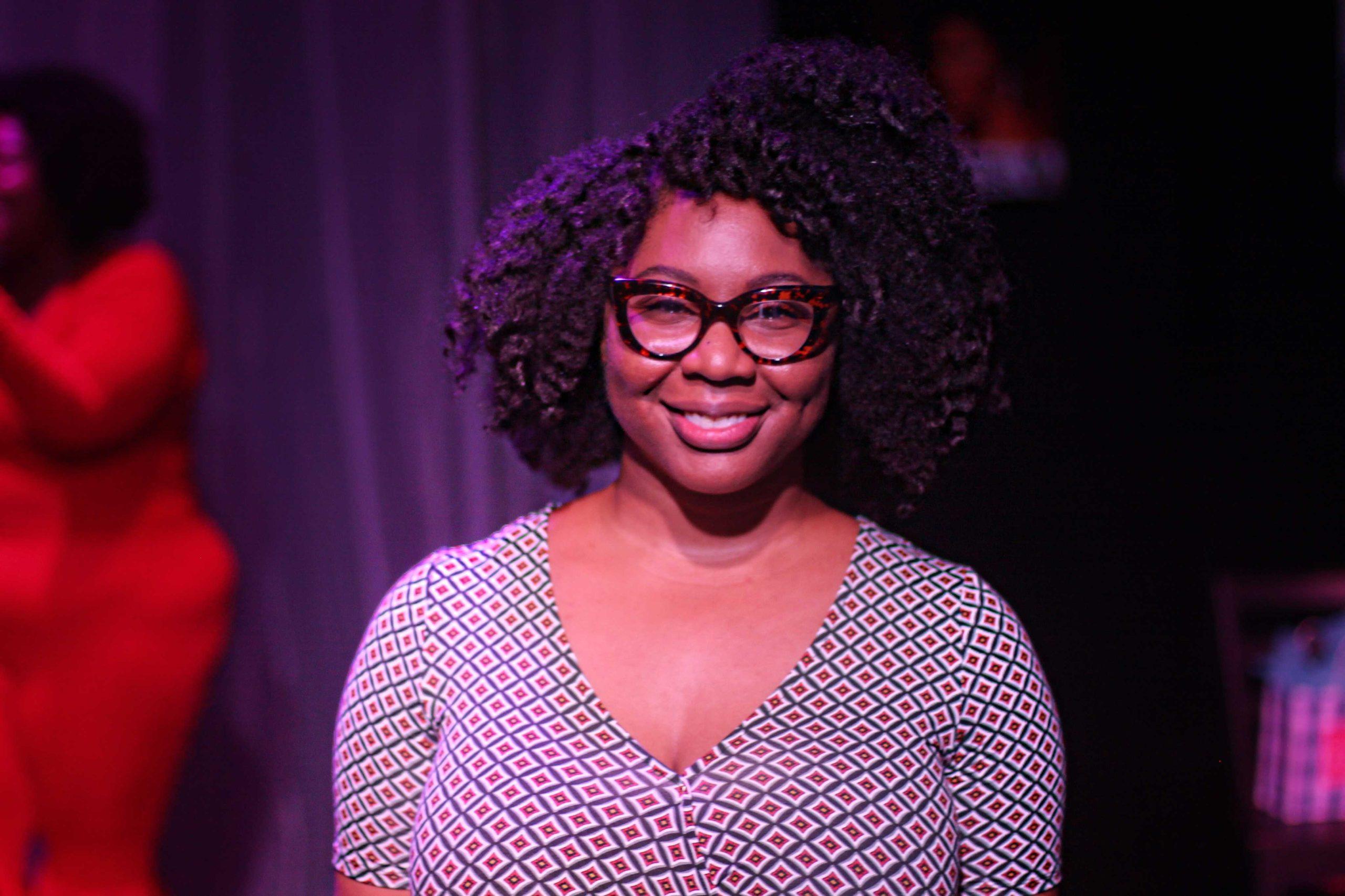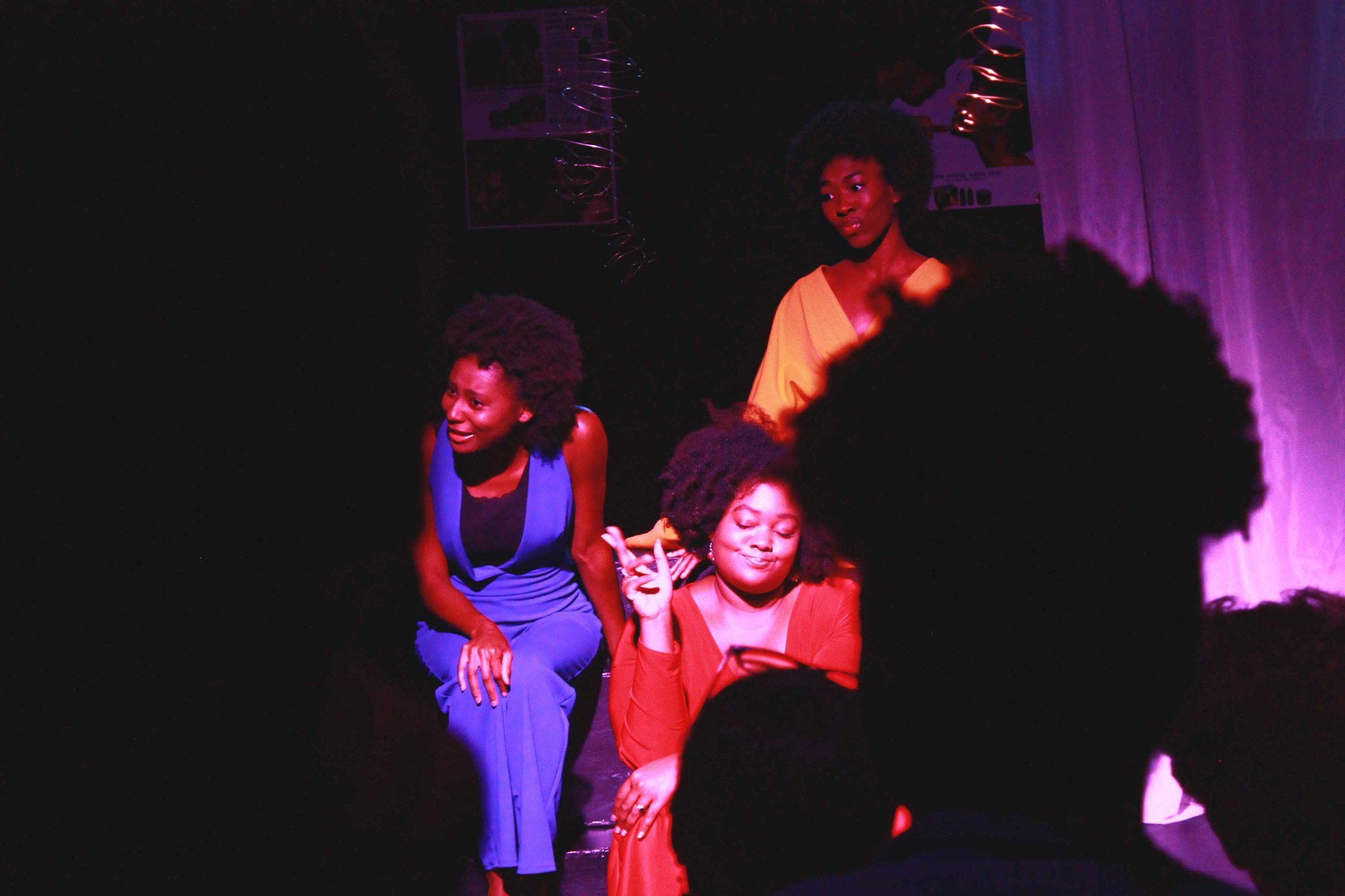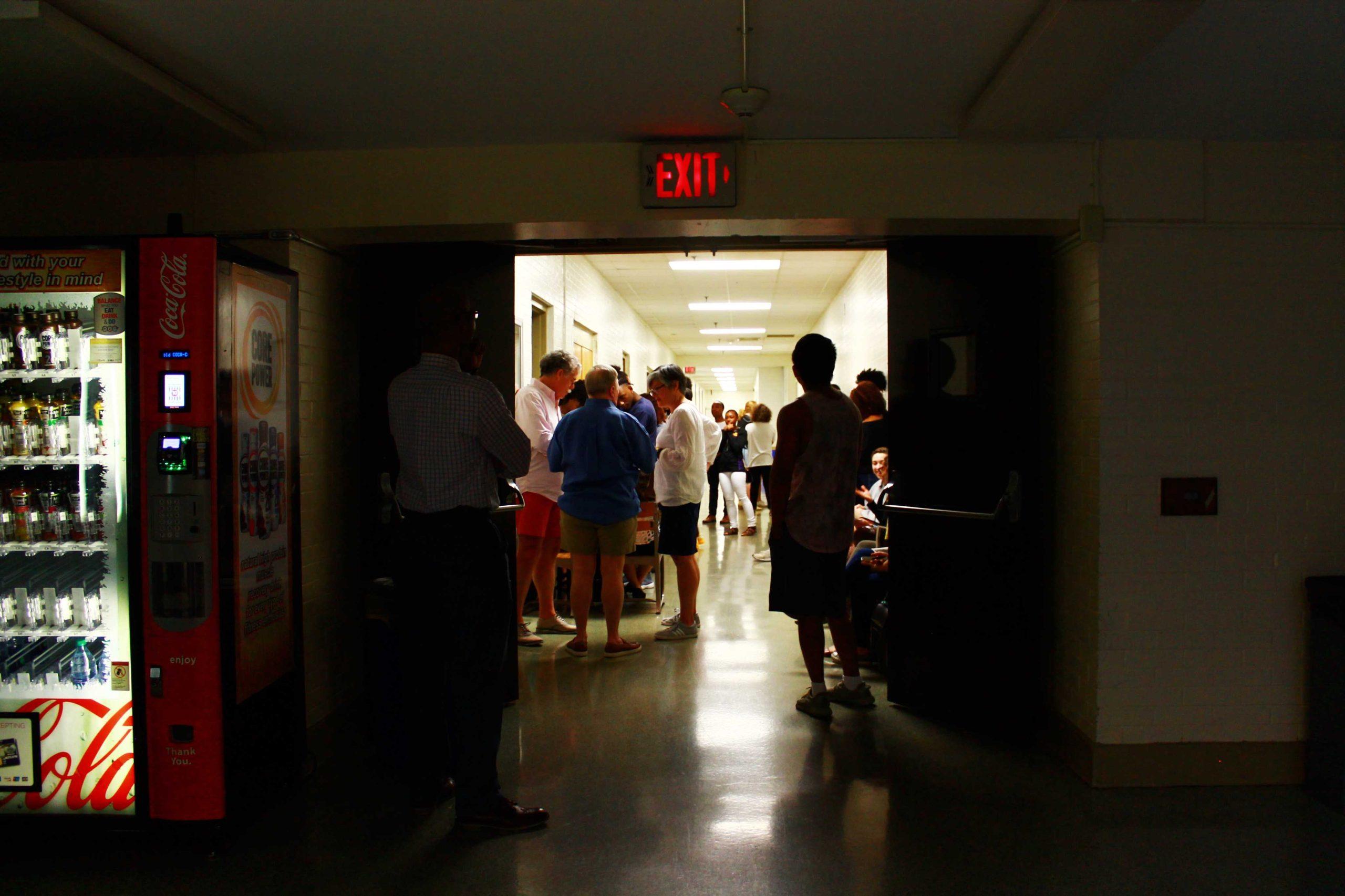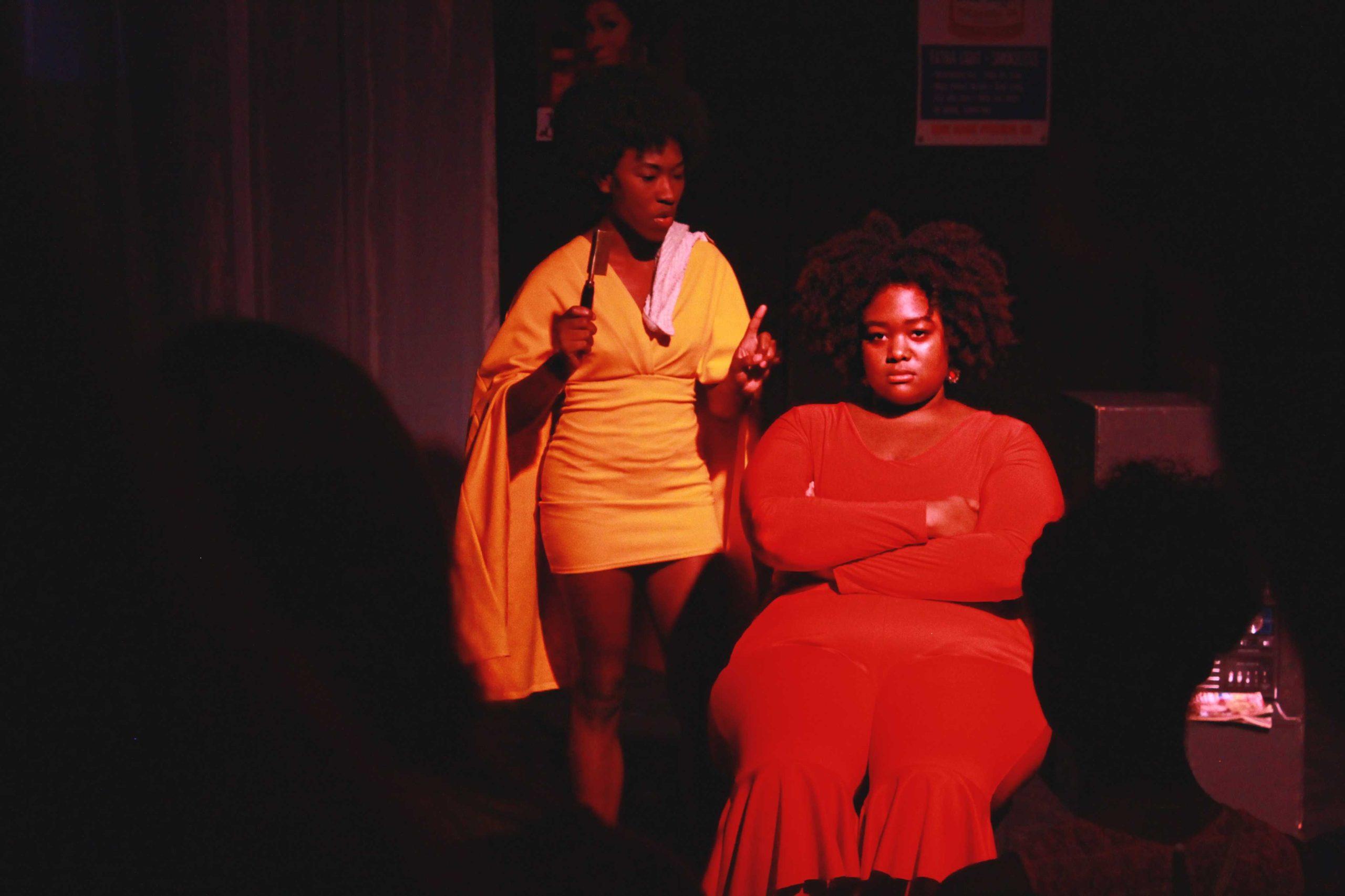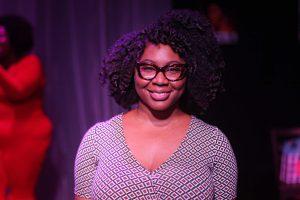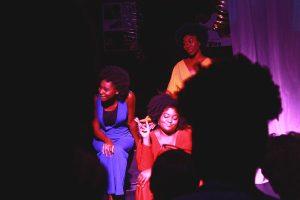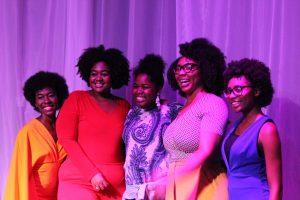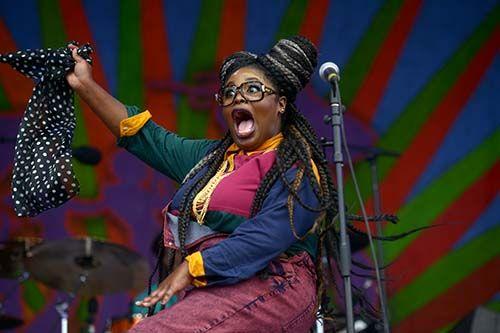Silhouettes enter, and the show starts.
LSU’s Hopkins Black Box Theatre isn’t a theatre by the standard definition. It’s a laboratory — a space for students and faculty to ask questions through live performances. Established by Mary Frances Hopkins in 1992, the theatre is run by the Department of Communication Studies.
Its latest production, “NAPPY Hairstories,” explores the relationship between black women and their hair. The show was created to empower black women, says communication studies graduate student Laura Oliver, who wrote and directed the show.
“[Black Box] is an experimental space where we can create almost whatever we want,” Oliver says. “It’s an empowering space for anyone who comes through here.”
Black Box is independently funded and does not rely on ticket sales or an annual budget to produce shows. Generally referred to as “poor theatre” within the industry, a black box’s budget doesn’t allow for elaborate sets. The absence of a stage allows the performance to be right in front of the audience, and actors often interact with viewers. This blurs the fourth wall and forms a more intimate setting, allowing the audience to act as participants.
The theatre performs independent productions, rather than classic playwrights, to give students a place to showcase their work and interpret the world around them. Black Box functions much more cooperatively than traditional theatre, says current manager David Terry. Everyone involved contributes to others’ projects to help them succeed, like faculty members pitching in with tech or stage setup.
The Black Box Committee decides each season’s lineup, consisting of students and usually one faculty member. Works range from literature to originals written by students or faculty.
Production themes often mirror topics within society, and the performances can be direct reflections of modern culture and social issues. A few of Black Box’s more recent shows have revolved around floods, social justice, non-verbal movement and relationships with technology and identity.
Black Box Theatre has a long history as an inclusive space for minority groups, like LGBTQ, people of color and feminist performers.
“[The Black Box] has a very sophisticated subversive history with people entering into the public sphere who weren’t supposed to be there,” Terry says. “Black Box creates a space for people and ideas and ways of being that are not typically allowed in public.”
For Oliver, the Black Box Theatre gives her an opportunity to express her identity as a black woman.
“I think for me, Black Box is something even more interesting,” Oliver says. “I get to bring my black body in a black box surrounded by mostly white faces all the time, so when I get the opportunity to do a show like [NAPPY] it’s layered in so many different ways that it makes me remember the people who could not come through LSU.”



